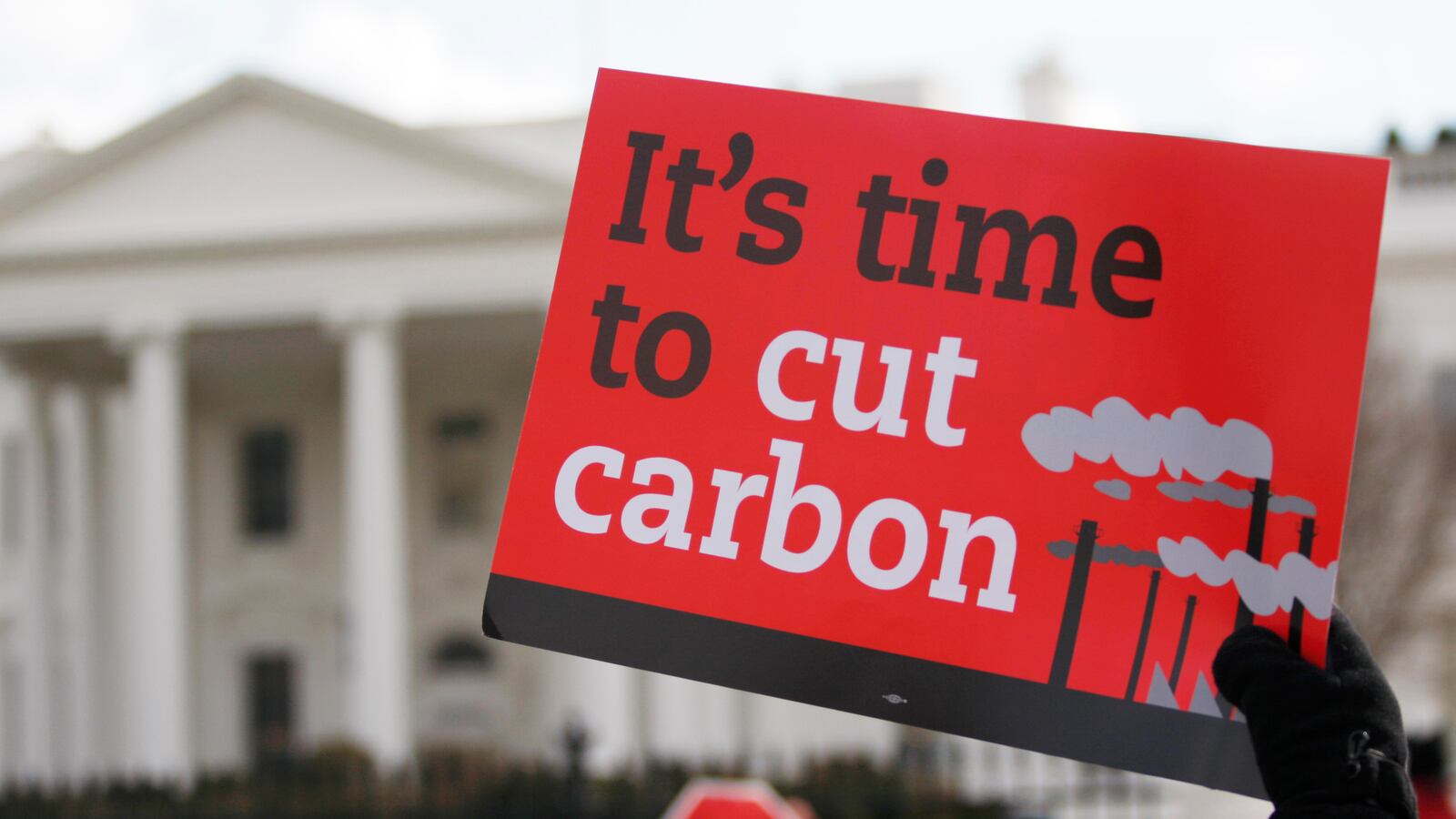Last week was a good week for natural gas, but a bad one for green gentry liberalism. John Podesta, a veteran of the Clinton White House who is once again a presidential adviser, tried to explain some energy facts of life to the true-believing liberal base. Still, it’s unclear if Podesta’s intended audience was listening, and that willful blindness may cost the Democrats control of the Senate.

Podesta warned that opposition to natural gas is impractical and not grounded in reality. As he explained, “With all due respect to my friends in the environmental community, if they expect us to turn off the lights and go home, that’s sort of an impractical suggestion.” Coming from Podesta—who previously headed the George Soros-funded Center for American Progress—them was fighting words.
Meanwhile, the Pew Research Center reported that the fight over the Keystone XL pipeline project was not a routine party-line battle between Democrats and Republicans, but a high-profile scrum pitting the Democrats’ donor class against the rest of America. According to Pew, the public actually favors Keystone by better than two-to-one, with opposition concentrated among graduate degree holding Democrats, and Democrats with household incomes north of $100,000. In contrast to high-end Democrats, working class Democrats support Keystone—regardless of race.
So where does this leave would-be populist Al Gore—who branded Keystone as an “atrocity,” —along with would-be Democratic financial savior and Keystone opponent Tom Steyer, and the Democratic Party itself? How about a world away from job-craving America, and light years from the mid-twentieth century Democratic Party.
Indeed, this gap gives added credence to Professor Fred Siegel’s critique that “today’s liberal gentry see the untamed middle classes as the true enemy,” as he writes in his new book, The Revolt Against the Masses: How Liberalism has Undermined the Middle Class. It’s not that the Democrats don’t know that they have a problem with the non-government employee middle class, but it’s just that they really are not bothered by it. As the New York Times framed the issue, “many in the party pay so little attention to white working-class men that it suggests they have effectively given up on converting them.”
This hardly looks or sounds like the lunch-bucket liberalism of FDR and Harry Truman, or the JFK’s robust New Frontier, which sought to ameliorate poverty while embracing technology and space shots. No, the current iteration of liberalism sounds more like reactionary 19th century Toryism, which, in the words of Siegel, attacked further industrial and commercial expansion as “impossibly vulgar.” Indeed, the Tories of that day, many of them big landowners, found an intellectual champion in one Thomas Malthus.
Think aesthetics as politics, and academic credentials as peerage. Think of a latter-day Americanized version of Downton Abbey—where everyone knows his or her place, and our betters look best. Oh, also thrown in a dollop of NIMBY, or Not in My Backyard, and take the late President Kennedy’s nephew Robert Jr. as exemplifying gentry liberalism’s inner impulse.
Kennedy Jr., self-declared vaccination opponent and environmental champion, trumpeted his support for wind farms—but just not near fashionable Cape Cod. Lauding himself for endeavoring to place “wind farms in appropriate landscapes,” Kennedy declared that he would not build a wind farm on Nantucket Sound. Kennedy conveniently omitted the fact, however, that his family’s compound is located in Hyannis Port, on Nantucket Sound itself, but let the world know that he was “an environmental lawyer and professor at Pace University Law School.” Can you say to the manor born?
Given that the entire House of Representatives and a third of the Senate stand for election in November, Keystone will likely be on the job-hungry electorate’s mind, particularly given that the Senate seats most likely to be in play are disproportionately located in oil patch America. Democratic held seats in energy-rich Alaska, Colorado, Louisiana, Montana and South Dakota may well change hands on Election Day. Already, MSNBC’s Chris Matthews is acclimating himself to the possibility of a Republican-controlled Senate.
Yes, projected Republican wins are a reasoned backlash against Obamacare. But they’re also about jobs, and they’re also about energy—just as it was in 2010. Four years ago, the GOP regained the House in part due to a “cap and trade” tax passed by House Democrats with the President’s blessing. As Politico put it: “Democrats who voted for the controversial House climate bill were slaughtered at the ballot box,” and in the Senate, “several reliable green advocates also went down to opponents who derided tough new environmental policies.” Ironically, and unexpectedly, even without legislation “the U.S. is already nearly halfway to the targets of the cap-and-trade bill.”
It’s not that the public is anti-environment. Far from it. Rather, it’s that most Americans are pro-jobs, and the Obamans’ promise of green jobs galore failed to materialize. Back in 2008, Obama pledged to “create 5 million ‘green’ jobs . . . invest $150 billion over 10 years to deploy clean technologies, protect our existing manufacturing base and create millions of new jobs.” To put it mildly, Obama has come up short on each of these metrics. The President is better remembered for the debacle of Solyndra, the solar cell manufacturer that went bankrupt and left the taxpayer holding the bag; a sluggish recovery; declining workforce participation rates; widening inequality, and stock market records that only the one percent can afford to love.
The administration is aware of its shortcomings on green jobs creation. A year ago, the Bureau of Labor Statistics (BLS) announced that it was pulling the plug on its publication “of new data on employment by industry for businesses that produce green goods and services.” While all this may have weighed on Podesta’s mind, it has apparently escaped the notice of die-hard gentry liberals. And make no mistake: They will definitely be kept awake at nights if the GOP controls the Senate come next January, with only themselves to blame.





